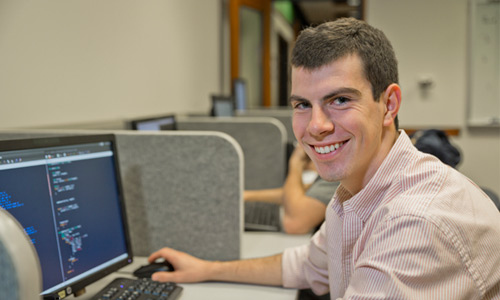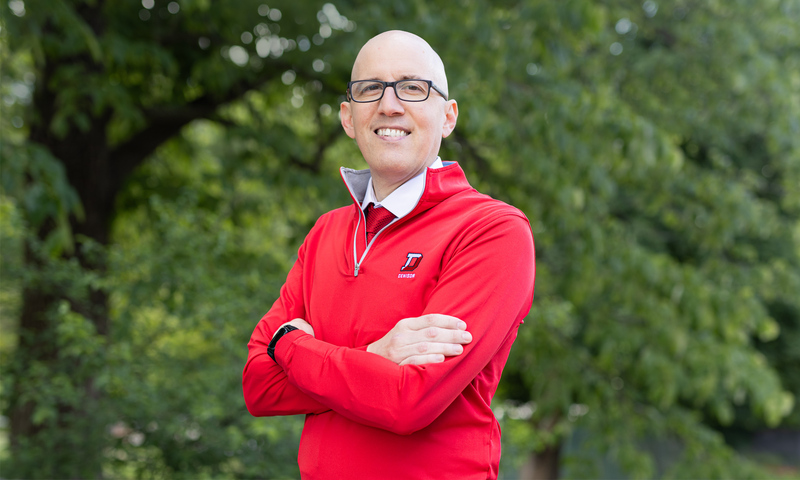Nick Costa ’16 spent his summer in Florida, but not on vacation. Costa interned as a software developer at the NASA at the Kennedy Space Center in Cape Canaveral.
Costa explained that though he knows a lot about computers, he knew virtually nothing about rockets. For that reason, he spent a lot of time meeting with the people at NASA who would be using interface screens to find out what they needed and wanted.
“I worked in the NEC1 Directorate, basically an engineering department, specifically controlling data systems,” Costa explained.
“Throughout my summer internship I was able to visit all the various facilities on the Kennedy Space Center and meet with NASA personnel from varying skill sets. I was fortunate to go into the firing rooms where the space shuttles are processed and launched.”
Most of Costa’s internship work was based around NASA’s new spacecraft, Orion. According to NASA’s website, “Orion will launch on NASA’s new heavy lift rocket, the Space Launch System…More powerful than any rocket ever built.” The goal of Orion and the new Space Launch System is to send people deeper into space, including to Mars.
Costa helped design the user interface for the screens in the firing room.
“When you touch a button on the screen, it sends a message to the correct launch control position. These are deemed remote control applications. I wrote the applications for that to happen seamlessly,” he said.
Matt Kretchmar, professor of computer science at Denison, feels that practical experiences through internships are vital in an education in computer science, as they allow students to understand and appreciate the application of principles learned in the classroom and see how they impact the corporate world.
“An internship isn’t an experience you can simulate, substitute for, or otherwise re-create in the classroom setting. Nick has returned to Denison with a very different perspective of how he can connect his education with actual application in the field,” Kretchmar said.
When Costa was not working on software development, he was keeping busy with one of the many diverse projects. One of his assignments included performing unit testing on NASA’s programming language. “My boss dropped all this code on my lap and said ‘Figure out why this doesn’t work.’ This tremendous experience provided the opportunity for me to problem solve and make an immediate impact!”
“NASA wants people who aren’t necessarily computer scientists to be able to write code, so they make their own programming language that is easier to use. I tested every possible case and made sure it is not going to break,” Costa said.
Upon graduation, Costa hopes to either work as software developer or attend graduate school through NASA’s Pathways Program. He recently was awarded an academic and leadership scholarship from the Salem Community Foundation in his hometown of Salem, Ohio.

